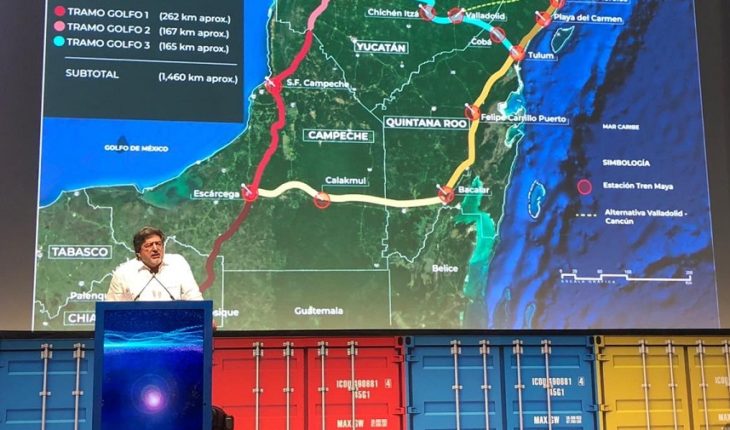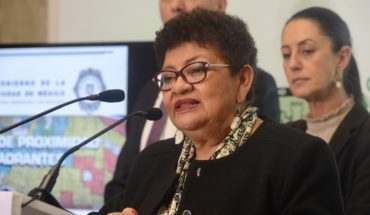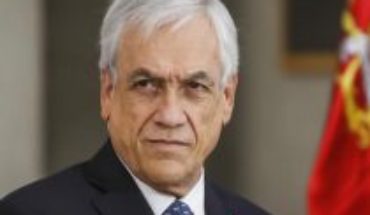Leaders and activists who oppose the Maya Train met, last Saturday, July 13, with the director general of Fonatur, Rogelio Jiménez Pons, and the head of UN Habitat for Mexico and Cuba, Eduardo López Moreno, to expose his dissatisfaction with this project that , they believe, will only bring economic benefits to large investors, while they, the inhabitants of the area, will leave “precarious jobs”.
“We told them that we are not ravaging the jungle, that on the contrary, that we take care of it, we care for the bees and that we do not oppose the development, but we want the communities to be included, we do not want it to happen here as in Cancun or in the Riviera Maya , where the inhabitants of the area sold their plots and later stayed serving in the hotels: waiters, waiters,” said Anastacio Oliveros, a localist from Calakmul, a beekeeper and member of the Mayan Alliance for Bees in the Yucatan Peninsula, who was present at the meeting.
Oliveros explained that opponents of the Maya Train have that position because they have seen what has happened in other tourist areas of the region, where “the Mayan people have only gotten bad jobs, after losing their land. For them, poverty and inequality were followed. Areas have become a focus of violence and tourism has brought problems such as drug trafficking and human trafficking.”
Read: ‘Who asked you for a train? It’s just going to bring more destruction,’ Southeast activists claim
The same concern is available to other activists from different regions where the Maya Train will pass. Wilma Esquivel Pat, vice president of the U Kuuchil K Chibalom Community Center and resident of Felipe Carrillo Puerto, Quintana Roo, told Animal Político that Mayan communities see with concern what tourism has generated in areas such as Cancun, the Riviera Maya and to Bacalar.
“We see what’s going on there: drug trafficking, violence, murder, femicides and our young people working in the big hotels, serving those who despise them and having to smile a lot to earn a tip.”
The same was pointed out by Pedro Uc, inhabitant of the community of Buctzotz, in Yucatan, and member of the Assembly of Defenders of the Maya Muuch’ Territory.
“What happens with megaprojects is that they strip people of their land, with deception or with illusions. Communities are divided, fought and ended up leaving the place, and then which Maya, there is only the name, the brand that is what they sell.”
In this regard, the Study Social and Territorial Impacts of the Maya Train, prepared by the National Institute of Anthropology and History (INAH), the UAM Xochimilco and Altépetl Productive and Environmental Community Development A.C., notes that while this project aims to detonating tourism development on the southern peninsula, it is necessary to demystify this industry as an activity that offers economic gains at zero impact, and that also promotes the “beautiful” and the “fun”.
Tourism, the document states, is the linchpin of a powerful and highly predatory industry, in environmental and social terms; it imposes other cultural models and implements economic enclaves that boast inequality between those who travel, know and have fun, and their hosts, volunteers or obligated.
The study also raises the analysis of the scenarios in the consolidated tourist destinations of the Riviera Maya, in relation to the development of illegal economies, substantial to the type of mass tourism, and the increase of criminal violence.
There will be no mass tourism
Rogelio Jiménez Pons, owner of Fonatur, said in interview for Animal Político that in Calakmul will not promote mass tourism, but a niche in which people from the communities will be the main players.
“Tourism sensitive to the cultural, environmental and social context will be encouraged. This approach is characterized by low environmental impact facilities that integrate with the landscape and the region,” he said.
Read >> Tren Maya: social benefit offsets environmental impact, justifies Fonatur
In a separate telephone interview, Oswaldo Villalobos, who serves as a territorial link to the Maya Chetumal-Calakmul stretch Train, explained that the idea in the areas where the train will pass is to build on community ecotourism experiences.
“Communities are going to own these projects, perhaps under a model in which the ejidatarios put their land, as their business participation, and then an agreement with some investor. But looking for the investment to eventually return to people.”
Villalobos pointed out that in the area there is already such a model, the Hotel Chicanná, in which the ejidatarios laid the land and a champion businessman built the hotel, with an ecotourism concept. What they did, the official said, was a 30-year agreement. Once it is over, the investor will transfer the hotel to the ejidatarios.
Paradoxically Anastacio Oliveros and other settlers of Conhuas have been planning, for three years, to open a hotel with about 15 or 20 cabins and a restaurant, which will be of the ejido.
“This project would be community-based, but we haven’t been able to do it because we haven’t raised the capital. We hope to start it already this year, on 60 hectares. The money we have gathered from the savings that come together from the ejido and another part will be from projects supported by the National Institute of Indigenous Peoples (INPI), so soon with them we already have the support for the restaurant, which we hope to start building in October.”
Questioned whether Fonatur has already been told about this project, Olivares said no, but they do know him. “Although we do not believe that they will help us because they are betting on the Infrastructure and Real Estate Investment Trusts (FIBRAs)”, which include various schemes, such as the association of landowners (ejidatarios) with companies construction companies to generate an infrastructure, or the rent of properties already built.
No development, no train
Despite the divergences, Anastasio Oliveros noted that the authorities now seem to be more willing to listen to the people who oppose the Maya Train and that, at last Saturday’s meeting, Jiménez Pons was more receptive to the approaches and indigenous peoples’ needs.
“We told him that they must first help us solve all the gaps in the area. Here in Calakmul we have a very strong water problem. There are only three communities of 84 that have drinking water network. We don’t know how they want to bring hotels and big developments with that big gap.”
It was also stated that more and better educational offers are required for children and young people. The only university in the region, the Technological of Calakmul, only has the alternative tourism career, where they prepare them to be chefs, and administrators, but they are not focused on doing business.
“We want our people to be prepared to join the projects, but also from our concept of development, which is not to generate billions of pesos but a dignified life.”
On the lack of water, Oswaldo Villalobos, territorial link of the Maya Train stretch Chetumal-Calakmul by the Fonatur, said that the unit is very clear that it is a priority issue and has made a commitment to address it.
“We cannot talk about such a project (the Maya Train) without first solving the issue of water for the current inhabitants. We are already building a diagnosis and a critical path to give it a solution.”
Questioned whether to wait to resolve the water supply to move forward with the rail and tourism project, Villalobos said it will be done on a par. “Calakmul is the last stretch to start construction. The first rail will start to be put on maybe by the end of the next year. And the start-of-operations projections are in 2023. Our circulation is to provide solutions to the water problem before, but we have a time horizon.”
On the other issues of concern to the inhabitants, he commented that the owner of Fonatur committed to the inhabitants to address the issue by topic: first water, then training and agricultural development.
What we do in Animal Político requires professional journalists, teamwork, dialogue with readers and something very important: independence. You can help us keep going. Be part of the team.
Subscribe to Animal Politician, receive benefits and support free journalism.#YoSoyAnimal
translated from Spanish: Maya Train can lead to fights and division: villagers
July 17, 2019 |




![translated from Spanish: [VIDEO] Pigs are registered for the first time in history using tools translated from Spanish: [VIDEO] Pigs are registered for the first time in history using tools](https://ananoticias.com/wp-content/uploads/2019/10/translated-from-Spanish-VIDEO-Pigs-are-registered-for-the-first-370x215.jpg)
